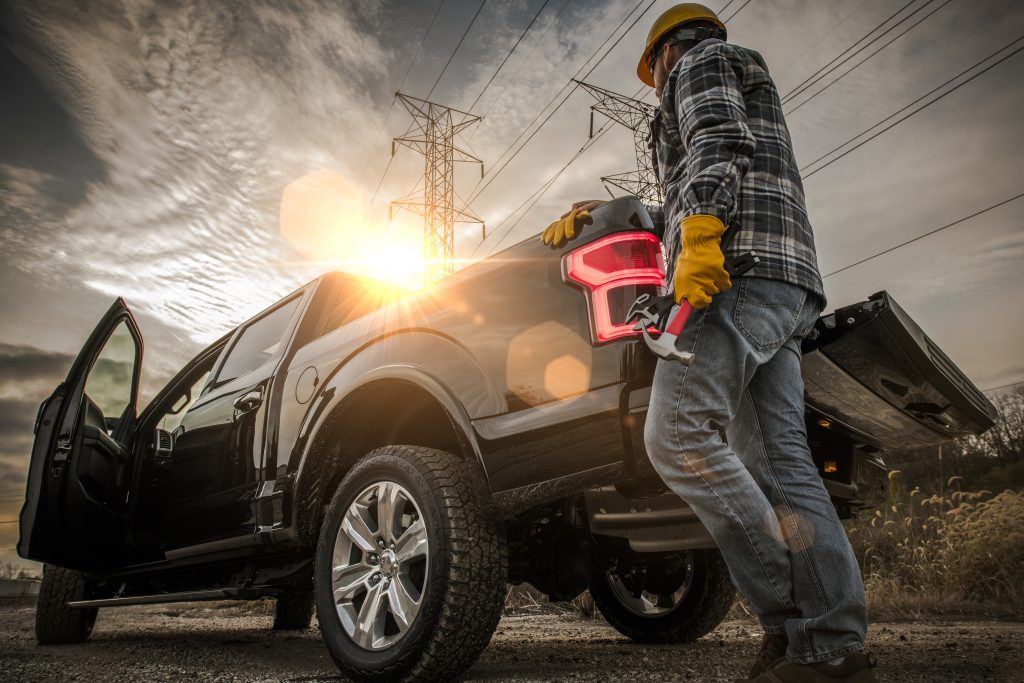
When purchasing a truck, many new buyers will focus on its payload capacity as they plan to utilize the bed. Payload capacity refers to the amount of weight that can be safely added to both the bed and cab of the truck.
That being said, when buying a new truck, if you aren’t happy with the stock payload capacity, there are actually ways to increase that with different modifications.
Why You Shouldn’t Overload Your Truck
Whether you’re driving a commercial truck or a typical pickup truck, it’s important to avoid overloading your truck as this can become a safety issue.
In order to avoid overloading your truck, you must first find out what your truck’s payload capacity is. Manufacturers like Chryslers or Jeeps, Fords, or Chevy’s, will provide this information either in the glove compartment, on stickers located inside the driver-side door, or in the owner’s manual.
There are actually two capacity’s in a truck to pay attention to: the payload capacity, which refers to what your truck can hold, and towing capacity, which answers how much weight a truck can tow.
Here are a few reasons why it can be dangerous to overload your truck:
- Causes stiff steering.
- Extra weight on shocks and springs, making the vehicle difficult to manage.
- Tires will endure unnecessary stress, potentially causing them to blow.
- Extra weight could cause the vehicle to turn over.
- Transmission failure.
- Could weigh the vehicle down enough for it to scrape the ground, causing mechanical damage.
How To Increase Payload Capacity
There are multiple ways in which you can increase your truck’s payload capacity. Here are four common ways to do so:
- Upgrade Rear Springs
While a truck’s weight is distributed evenly across the four springs that support each tire’s suspension, the rear springs are what endure the most weight when a truck is carrying a load.
That being said, upgrading the rear springs, whether they’re coil or leaf springs, to a higher-grade kit can help your truck support more weight. Basically, when it comes to coils, the thicker the spring the better.
- Attach A Trailer
This solution is fairly self-explanatory and is more of a cheat than a solution. This is because towing a trailer isn’t necessarily increasing your truck’s existing payload capacity. Instead, it’s adding an extension that allows you to tow either more weight or larger items.
- Replace Truck Bed With A Longer One
Installing a longer truck bed can help maximize the existing payload of your truck because it provides more space for larger items.
The majority of truck beds come standard with a five-foot bed. So, increasing the bed length to six or even seven feet can make a big difference in your truck’s payload capabilities.
- Add Coil-over Shock Absorbers
Regardless of your load’s weight, the best suspension system should keep your truck level at all times. However, this isn’t always the case with base model suspension systems, which is why adding coil-shock absorbers can help increase your payload capacity.
When a truck is at its peak payload capacity, it’s harder for the truck to remain stable. Coil-over shock absorbers aid reduce swaying and vibration while driving.
While coil-over shock absorbers are an aid to heavier payloads, making for a smoother ride, they don’t necessarily increase the payload as a whole.
Determining Payload Capacity
When it comes to a truck’s payload, here are some terms that are important to know and understand:
- Curb Weight
Curb weight refers to the vehicle’s weight when it’s delivered from the manufacturer. This number includes all the gear that comes standard with a vehicle based on the model and includes the weight of fluids required to run the engine, as well as a full gas tank.
- Dry Weight
This number refers to the weight of the vehicle when there are no liquids inside of it.
- Gross Vehicle Weight (GVW)
GVW is a combination of curb weight, cargo weight, and passenger weight.
- Gross Vehicle Weight Rating (GVWR)
GVWR is the maximum GVW that a specific vehicle is built for. Gross vehicle weight shouldn’t be higher than the GVWR because that would mean you’re overloading your truck, which, as mentioned above, is determined unsafe.
- Gross Combination Weight (GCW)
Finally, GCW is the weight of your truck including a full trailer, and is the maximum weight a vehicle is allowed to drive down the road with. This number includes the vehicle itself, any trailer being towed, cargo, and the passengers.
Conclusion
While the best possible way to ensure that the truck you purchase has a payload and towing capacity that’ll meet all of your needs is to buy one stock, there are indeed different ways to increase the payload capacity of your truck on your own.
However, if you’re going to do so, it’s important to do your research and be sure you know what your truck’s capacities are before and after any modifications. This way, you won’t be unsafely overloading your vehicle.

